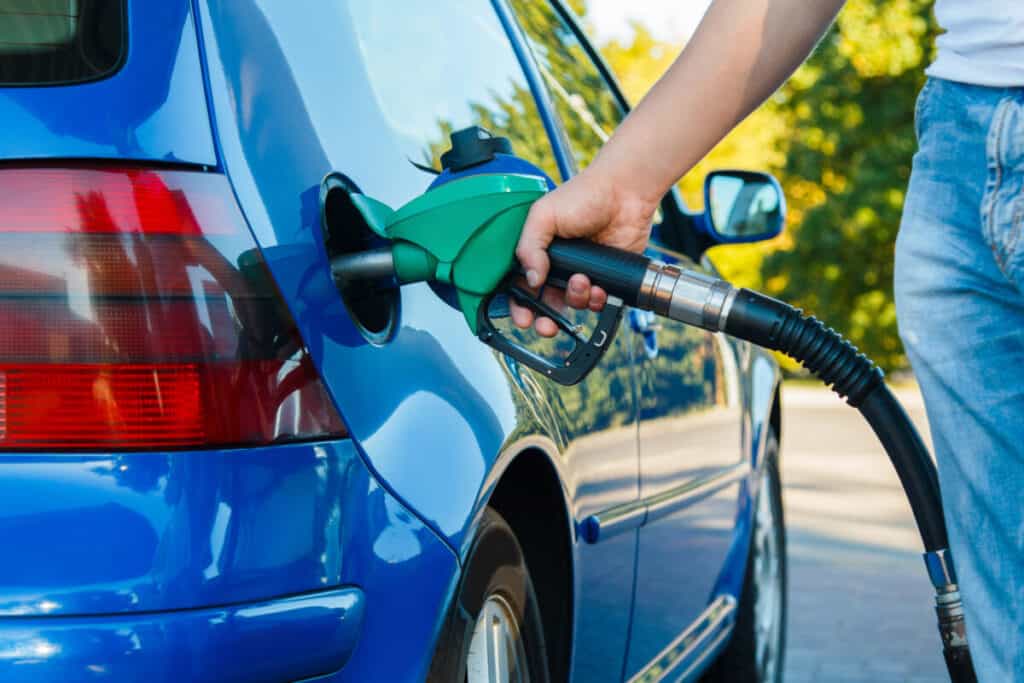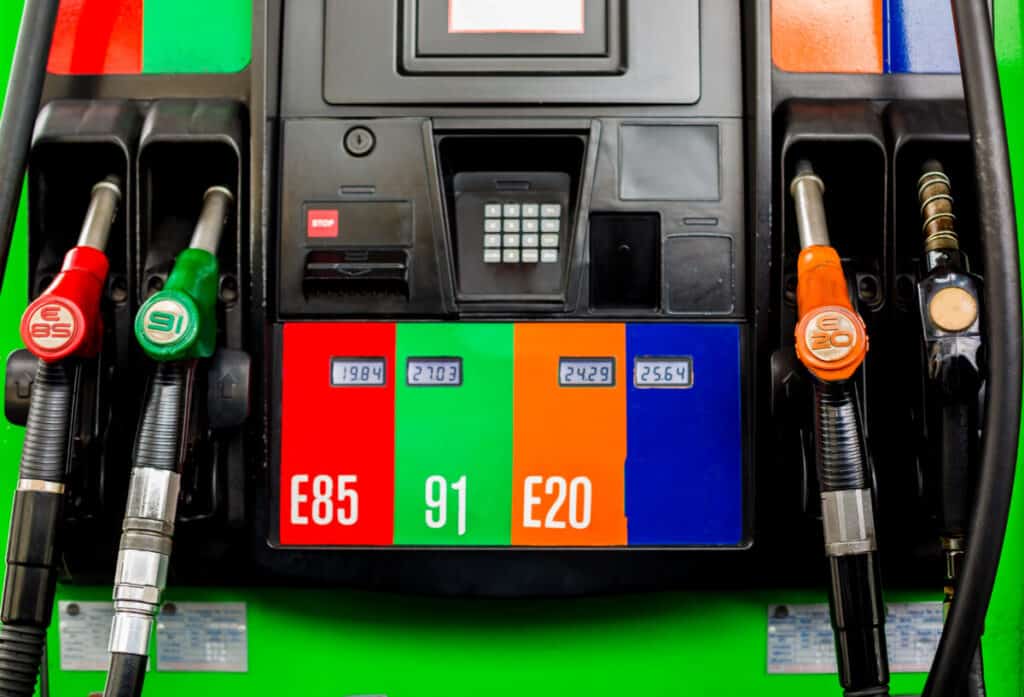Can You Run E85 in a Regular Car?
E85 fuel is made of 85% plant-based ethanol with the rest being regular unleaded gasoline. Because its gasoline content is lower, it is cheaper than regular gas. So, what cars can handle this type of fuel? Can you put e85 in your regular car?
Putting e85 in a regular gas car will cause some minor issues at first, but is not detrimental to the vehicle. Regularly using e85 in a car not made for it could also lead to more serious malfunctions in the vehicle later. E85 is used in cars that have been designed to be flex-fuel vehicles.
So, what happens when you mix these fuels, by accident or as an experiment, and vehicles that they are not designed for?
What Happens If I Accidentally Put E85 in My Car?
If you accidentally fill your regular gas car with e85 fuel, it is not the end of the world. Most likely the check engine light will turn on and your vehicle’s performance may noticeably change for the worse. You also may not be able to get the same miles per gallon that you normally expect from your car.
Putting e85 in your gas car one time is easily fixable, however, it might cause lasting damage if done repeatedly.
Can You Run E85 in a Non E85 Car?
While it will most likely wound the performance of your vehicle while in use if you use e85 fuel in your gas car, you can still recover from this mistake.
The difference between e85 and normal gas is simply the amount of ethanol the mixture contains. According to the United State’s DOE (Department of Energy), most regular gasoline contains about 10% ethanol with 90% actual gasoline. E85 fuel is called such because it is made of 85% ethanol, with the rest being gasoline.
This means that if you fill your vehicle with e85 but need regular gasoline, it is possible to top off with regular gasoline so your ratio will slowly return to normal for the best result. It is important still to recognize the limits of your vehicle while trying to use up the e85 mistakenly put in your car. Repeatedly adding more unleaded gas to your car to increase the percentage of regular gas to ethanol in your tank will save your vehicle from any long-lasting damage.
Can E85 Hurt My Engine?

Its common knowledge that the wrong type of fuel can be detrimental to a vehicle. However, we just explained that e85 will not harm your vehicle too much, so why do we still warn against it?
E85 fuel is made for flex-fuel vehicles. This type of car can handle both e85 and regular gas perfectly. While e85 will always perform differently than regular gas, it is meant to perform that way in a flex-fuel car and this does not mean it is damaging it.
However, in a regular car repeated use of e85 will eventually cause problems and damage to your engine. E85 attracts moisture, which is not something you want in your engine. E85 can damage rubber seals in engines, gaskets, and non-metallic components. This is the same for long periods of use with the wrong fuel type. It will damage your vehicle more the longer it is used.
Will E85 Damage My Fuel Pump?
Another concern of having e85 is the fact that it is not easy to pump. As mentioned above, e85 is hygroscopic, meaning it attracts moisture from the air and around it. This can cause water to build up in the pump system and cause water damage to many engine parts.
Water damage could occur to injectors and the pump itself, regulators, and lines if not acknowledged and fixed in a timely fashion. This means that any pump where e85 is used must be checked regularly and have maintenance done on it more often than pumps of other types of gas.
About E85

The main difference between the two fuels gasoline and e85 is that one is made of mostly gas with some ethanol, and the other is made of mostly ethanol with some gas added to it. What are the reasons to use e85 though? While it is not recommended for use in your normal car, it isn’t deadly to your vehicle. Why do some cars use e85 in the first place?
Some think that e85 is better for the environment. However, while it does burn cleaner than gasoline, there is no difference in the amount of greenhouse gasses this fuel gives off and that of gasoline. However, there is a difference in its source. Ethanol is a renewable fuel unlike fossil fuels because it is made of starch from corn and other plants.
Another reason e85 is appealing is that it does not have to be outsourced. America relies heavily on other countries for many resources, including unleaded gasoline. However, e85 can be made locally and make the U.S. a more self-sufficient country. It also has a higher combustion temperature which decreases the risk of it igniting in the chamber prematurely. This is a reason it is popular with racing enthusiasts.
There still are some heavy downfalls to the use of ethanol-based gas.
There is also a 20% drop in efficiency when using e85 compared to that of a gasoline car. E85 is less costly than unleaded gasoline, but due to its less efficient nature, it might not save you that much money because you will be refilling much more often.
As stated, ethanol does not burn the same as gasoline. One of the reasons E85 has any gasoline in it at all is so that it can still be used in the cold. Because of its higher combustion temperature, when it is too cold it is harder to ignite ethanol than unleaded gasoline. This is also why e85 might be different in different locations. Places that get even colder might have e70 fuel instead because its higher gasoline content will help it start in the snow. However, e100 does exist and is used in places that stay relatively warm for most of the year.
